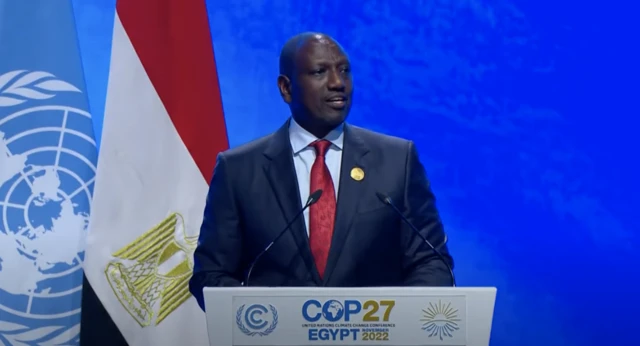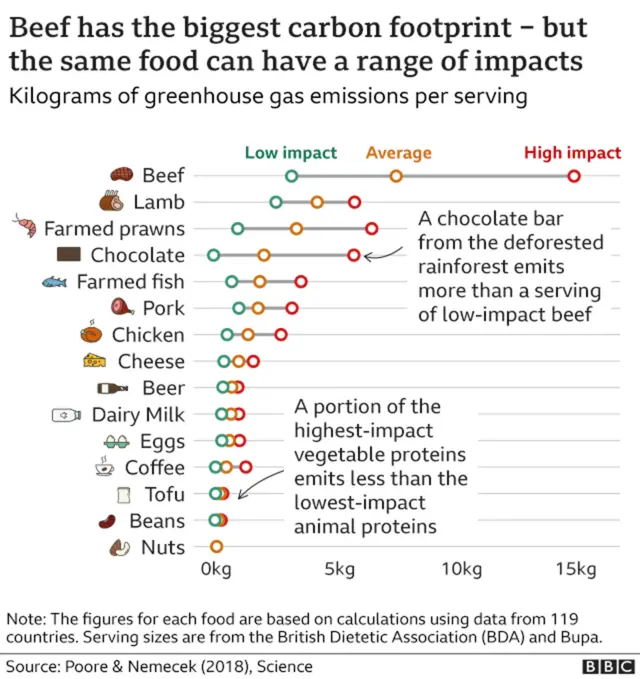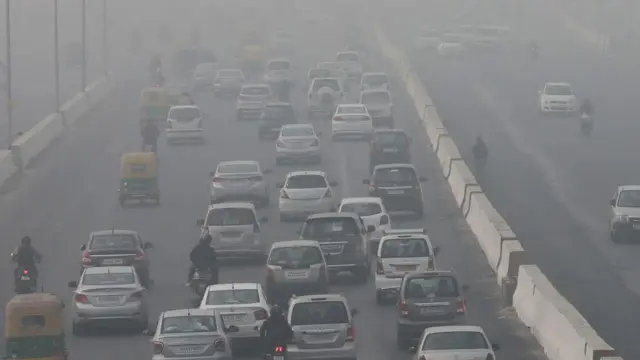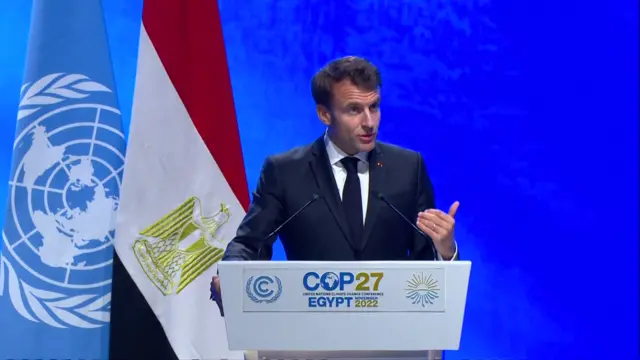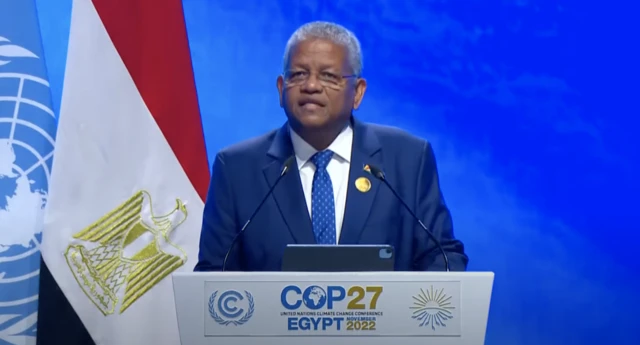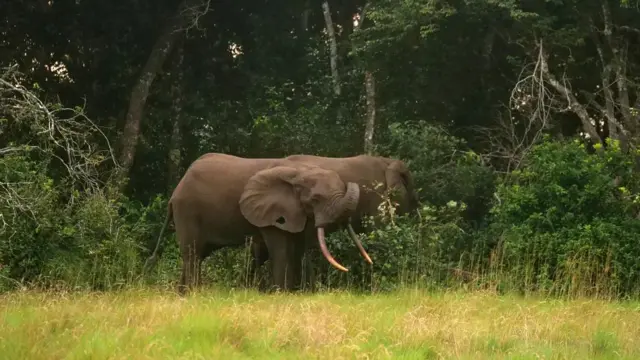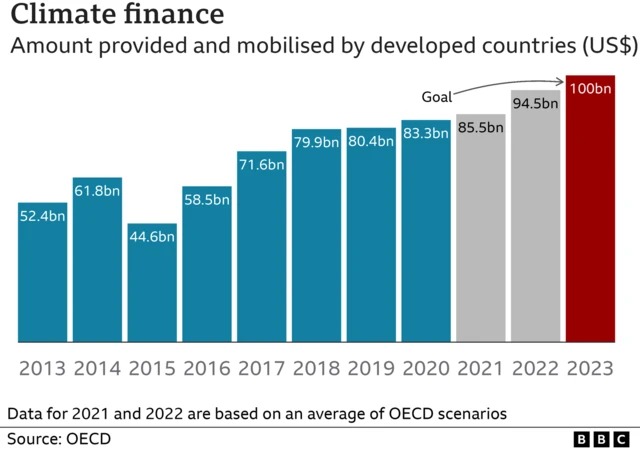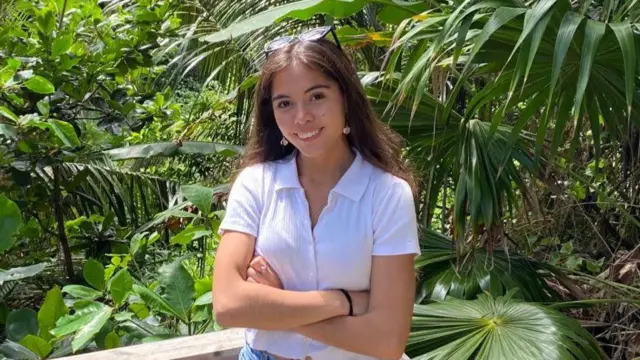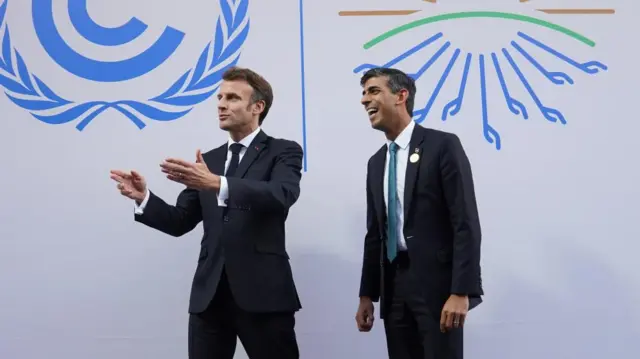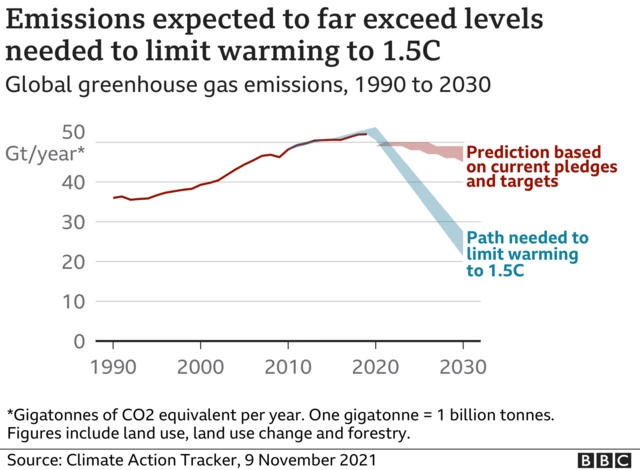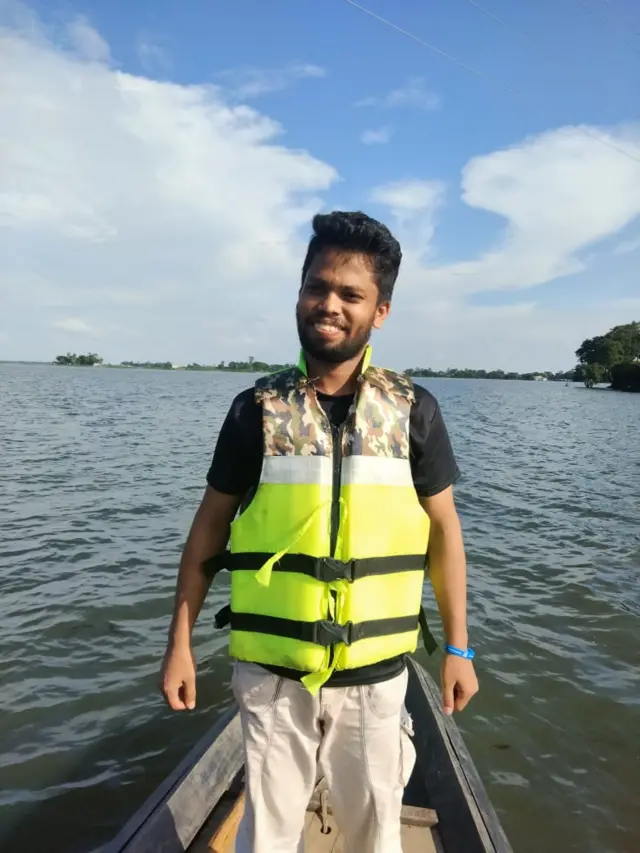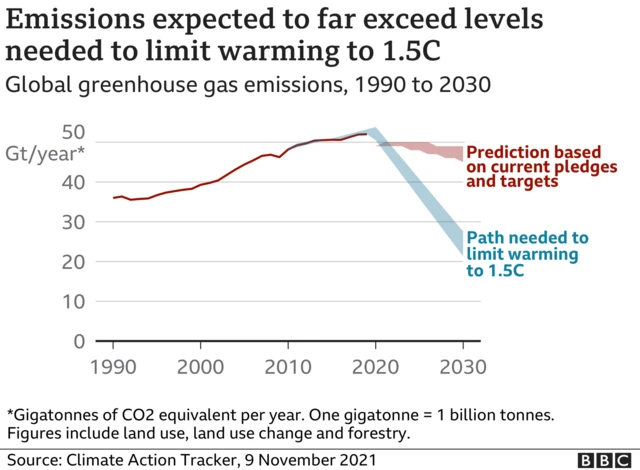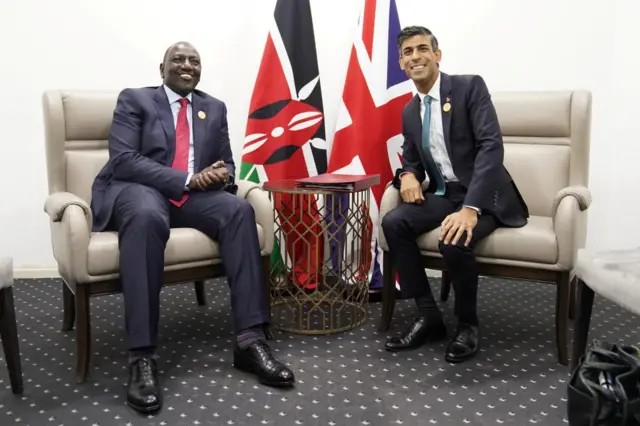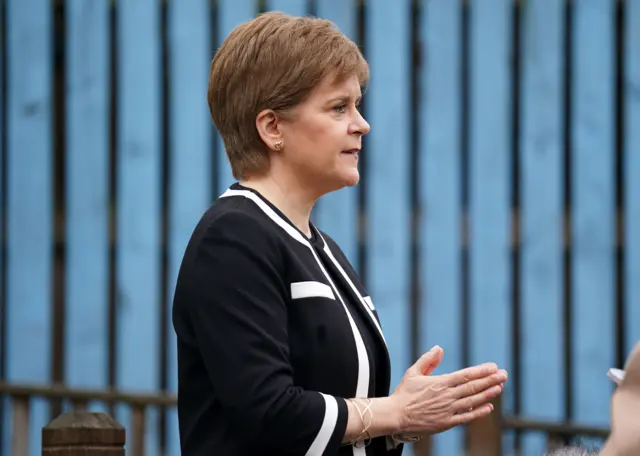'Is it actually letting us speak truth to power?'published at 16:59 GMT 7 November 2022
 Esme Stallard
Esme Stallard
Climate change reporter at COP27
The busiest and most electric pavilion does not belong to a country, but the Children and Youth Pavilion.
This is the first time there been a dedicated space for young people and it is packed.
Teenagers sit in circles talking passionately about climate change – and they know what they’re talking about.
Dishi Ravi, a 24-year-old climate activist for Fridays for Future, from India, said that the pavilion has “become a safe space for all of us”.
She said its important for young people to be included at COP27: “We were born into this climate crisis. We have contributed very little to it but we are already experiencing the impacts first hand.”
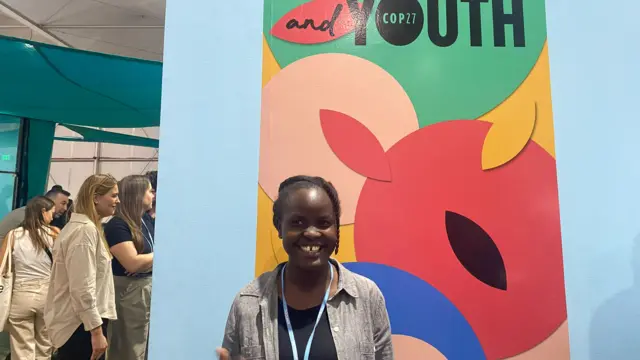
Evelyn Acham, 31, a young climate activist from Kampala, Uganda
Evelyn Acham, an activist from Kampala, Uganda, agrees. She explains that she knows children who have dropped out of school and been forced into child marriages because their schools have closed from flooding.
She wants to see developed countries meet their previous promises and also develop quicker ways of getting finance to those in need.
But Ravi is not convinced that leaders are listening. She tells me: “They want to showcase that they are having us involved by giving us this youth pavilion... but is it actually letting us speak truth to power? There is no one in power here… they don’t think it’s important enough. The pavilion can sometimes feel like a tokenisation.”
